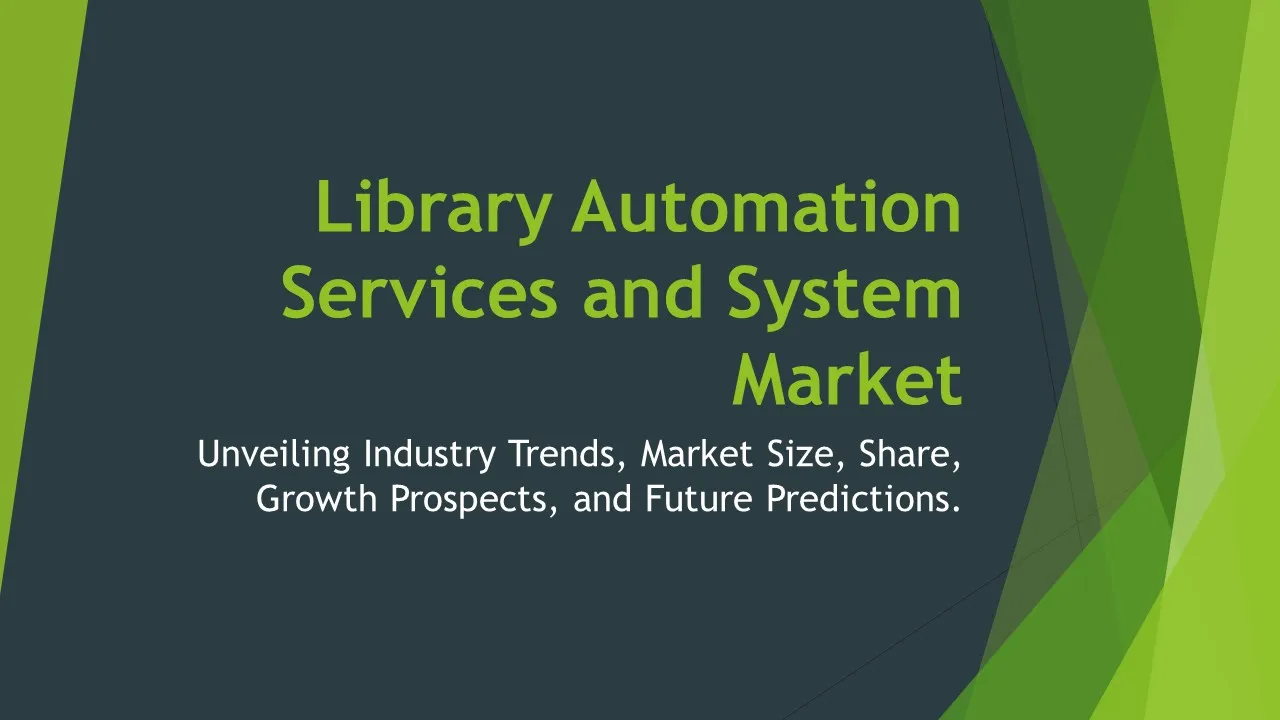Cloud based IIoT Software
IIoT Software Market Segments - by Deployment (Cloud-based, On-premise, Hybrid), IIoT Solution (Asset Management, Predictive Maintenance, Quality Management, Remote Monitoring, Energy Management), Industry (Manufacturing, Energy & Utilities, Automotive, Healthcare, Agriculture), End-User (Small & Medium Enterprises, Large Enterprises), and Region (North America, Europe, Asia Pacific, Latin America, Middle East & Africa) - Global Industry Analysis, Growth, Share, Size, Trends, and Forecast 2025-2035
- Report Preview
- Table Of Content
- Segments
- Methodology
Cloud Based IIoT Software Market Outlook
The global Cloud-based Industrial Internet of Things (IIoT) Software Market is projected to reach approximately USD 39 billion by 2035, growing at a compound annual growth rate (CAGR) of 19.2% during the forecast period of 2025-2035. Factors contributing to this substantial growth include the increasing need for real-time data analytics, the enhanced operational efficiencies achieved through cloud platforms, and the rising adoption of connected devices across various industrial sectors. Additionally, the growing demand for predictive maintenance solutions and the rising emphasis on automation and digital transformation in industries further fuel the market expansion. The proliferation of smart factories and the government initiatives promoting digitalization also play a significant role in accelerating market growth.
Growth Factor of the Market
Several key factors are driving the growth of the Cloud-based IIoT Software Market. Firstly, the shift towards Industry 4.0 and the digitalization of manufacturing processes necessitate the integration of advanced IIoT solutions to optimize operations and reduce costs. Secondly, the need for enhanced data security and scalability offered by cloud solutions encourages enterprises to migrate from traditional on-premise systems. Furthermore, the increasing implementation of smart sensors and devices in manufacturing and supply chain operations supports the demand for IIoT solutions. The availability of advanced analytics tools and machine learning algorithms enables businesses to derive actionable insights from the vast amount of data generated, ensuring better decision-making. Moreover, the rising investment in research and development for innovative IIoT applications will further bolster market growth.
Key Highlights of the Market
- The market is expected to experience a significant CAGR of 19.2% from 2025 to 2035, indicating robust growth potential.
- Cloud-based deployment is gaining preference due to its flexibility, scalability, and cost-effectiveness.
- Predictive maintenance solutions are anticipated to dominate the IIoT solution segment, driven by their ability to prevent equipment failures.
- The manufacturing sector is projected to lead the market in terms of adoption, owing to the increasing automation and digitalization trends.
- North America is expected to hold the largest market share, fueled by the presence of major technology players and significant investments in IIoT technologies.
By Deployment
Cloud-based:
Cloud-based deployment is increasingly preferred in the Cloud-based IIoT Software Market, primarily due to its inherent advantages, such as scalability, cost-efficiency, and ease of access. This deployment model allows organizations to leverage cloud infrastructure to manage their IIoT solutions without the need for extensive on-premise hardware. Businesses can quickly deploy solutions across multiple locations and scale their operations seamlessly as demand fluctuates. Additionally, the ability to perform real-time data analytics and access a wide range of tools in the cloud enhances operational efficiency. Furthermore, cloud solutions offer robust security protocols to protect sensitive data, which is particularly crucial for industries such as manufacturing and healthcare. The growing trend towards remote work and the necessity for real-time collaboration further support the shift towards cloud-based deployments in the IIoT sector.
On-premise:
On-premise deployment models continue to be a significant segment within the IIoT Software Market, particularly for industries where data security and regulatory compliance are paramount. Organizations that handle sensitive information may prefer this deployment model because it allows them to maintain full control over their data and IT infrastructure. On-premise solutions can be tailored to meet specific organizational requirements, providing flexibility in terms of customization and integration with existing systems. Additionally, industries such as finance and healthcare are often bound by strict regulations that dictate how data is stored and managed, making on-premise deployment a necessary option. However, this model may involve higher upfront costs and longer implementation times compared to cloud-based solutions, which can deter some companies from opting for it, particularly small and medium enterprises.
Hybrid:
The hybrid deployment model for IIoT software is gaining traction as it combines the benefits of both cloud and on-premise solutions. This model allows organizations to maintain critical operations and data on-site while leveraging cloud capabilities for scalability and advanced analytics. The flexibility of hybrid solutions appeals to industries that require a balanced approach to data management, enabling them to optimize operational efficiency while adhering to compliance standards. Additionally, the hybrid model offers the advantage of disaster recovery and backup solutions, minimizing risks associated with data loss. With the gradual transition towards digital transformation, many organizations are adopting hybrid models to balance performance, security, and cost-effectiveness, thus fostering growth in the Cloud-based IIoT Software Market.
By IIoT Solution
Asset Management:
The asset management segment in the IIoT software market is vital for organizations aiming to optimize their asset performance and reduce operational costs. Through real-time tracking and management of assets, companies can enhance operational efficiencies by minimizing downtime and improving resource allocation. Asset management solutions leverage advanced algorithms and IoT sensors to monitor asset health and performance metrics continuously, providing actionable insights to companies. These insights enable prompt decision-making regarding maintenance, scheduling, and resource allocation, ultimately impacting the bottom line positively. As industries increasingly adopt smart manufacturing practices, the demand for sophisticated asset management solutions continues to grow, driving innovation and growth in this segment.
Predictive Maintenance:
Predictive maintenance is emerging as one of the most critical components of the IIoT software market due to its ability to prevent costly breakdowns and enhance equipment longevity. By employing advanced analytics and machine learning algorithms, predictive maintenance solutions analyze data collected from sensors and machinery to predict potential failures before they occur. This proactive approach not only reduces unplanned downtime but also minimizes repair costs, contributing to significant savings for organizations. Companies that implement predictive maintenance can optimize their maintenance schedules, ensuring that they are performed only when necessary, thus avoiding unnecessary operational interruptions. As industries, particularly manufacturing and energy, increasingly recognize the value of predictive maintenance, it is expected to hold a considerable market share in the coming years.
Quality Management:
Quality management solutions within the IIoT software market are essential for organizations striving to enhance product quality while minimizing waste and operational costs. These solutions utilize real-time data to monitor production processes, enabling companies to identify and rectify quality issues promptly. By integrating quality management systems with IIoT technologies, organizations can gain insights into the entire production lifecycle, from raw materials to finished products. The implementation of such solutions results in improved compliance with industry standards, reduced rework rates, and enhanced customer satisfaction. As global competition intensifies, the demand for effective quality management solutions is expected to grow, influencing the overall Cloud-based IIoT Software Market positively.
Remote Monitoring:
Remote monitoring solutions are increasingly important in today's interconnected industrial landscape. These solutions enable companies to monitor their equipment and processes in real time, regardless of geographical location, thereby enhancing efficiency and reducing operational risks. Remote monitoring utilizes IoT sensors to gather data on various parameters, such as temperature, humidity, and machine performance, which can be analyzed remotely. This capability not only assists in timely decision-making but also facilitates remote troubleshooting and maintenance, reducing the need for on-site visits. As industries embrace digital transformation and the demand for operational efficiency rises, remote monitoring solutions are expected to witness significant growth in the Cloud-based IIoT Software Market.
Energy Management:
Energy management solutions are gaining prominence in the Cloud-based IIoT Software Market due to the increasing focus on sustainability and energy efficiency in industrial operations. These solutions leverage IoT technology to monitor energy consumption patterns, identify inefficiencies, and implement strategies to optimize energy use. By deploying energy management systems, companies can significantly reduce energy costs and lower their carbon footprint, aligning with global sustainability goals. Additionally, such solutions provide detailed reporting and analytics, enabling organizations to make informed decisions regarding energy procurement and usage. With the rising costs of energy and growing regulatory pressures, the demand for effective energy management solutions is anticipated to increase substantially in the coming years.
By Industry
Manufacturing:
The manufacturing sector is the largest end-user of cloud-based IIoT software, driven by the need for automation, efficiency, and enhanced competitiveness. As manufacturers strive to optimize their operations and improve productivity, the adoption of IIoT solutions has become paramount. These solutions enable real-time monitoring of production processes and asset performance, facilitating timely decision-making and immediate corrective actions. Moreover, the integration of IIoT technologies allows manufacturers to implement smart manufacturing initiatives, leading to reduced downtime, enhanced quality control, and improved supply chain visibility. As the manufacturing landscape evolves with Industry 4.0 trends, the demand for cloud-based IIoT software is poised to grow substantially, creating opportunities for innovation and growth in this sector.
Energy & Utilities:
The energy and utilities sector is undergoing a transformative shift with the adoption of cloud-based IIoT software to enhance operational efficiency and sustainability. IIoT technologies enable utilities to monitor energy consumption, detect outages, and analyze grid performance in real time, thereby improving service reliability and customer satisfaction. Additionally, the implementation of smart grids facilitates better energy distribution and consumption management, aligning with the growing emphasis on renewable energy sources. As energy companies prioritize digitalization and automation to optimize their resources and reduce operational costs, the cloud-based IIoT software market in the energy and utilities industry is expected to experience robust growth in the coming years.
Automotive:
The automotive industry is increasingly leveraging cloud-based IIoT software to enhance manufacturing processes and improve vehicle performance. With the rise of connected vehicles and smart manufacturing initiatives, automotive manufacturers are adopting IIoT solutions to improve operational efficiencies and foster innovation. These solutions provide real-time data analytics on production lines, enabling manufacturers to identify bottlenecks and improve supply chain management. Additionally, IIoT technologies are crucial in developing autonomous vehicles, as they facilitate real-time communication between vehicles and infrastructure. The growing demand for electric vehicles and the shift towards smart transportation systems further fuel the adoption of IIoT software in the automotive industry, presenting significant growth opportunities.
Healthcare:
The healthcare industry is increasingly recognizing the potential of cloud-based IIoT software to transform patient care and operational efficiency. IIoT solutions enable remote patient monitoring, ensuring timely interventions and reducing hospital readmissions. Furthermore, real-time data collection from medical devices enhances decision-making and improves patient outcomes. The adoption of IIoT technologies in healthcare aligns with the industry trend toward personalized medicine and telehealth solutions, which have gained significant traction in recent years. Additionally, cloud-based solutions provide healthcare organizations with the flexibility to scale their operations according to demand, facilitating improved resource management. As healthcare systems continue to digitize, the demand for cloud-based IIoT software is expected to rise significantly.
By User
Small & Medium Enterprises:
Small and medium enterprises (SMEs) are increasingly adopting cloud-based IIoT software to enhance their operational capabilities and compete effectively in the market. These solutions offer SMEs the advantage of lower upfront costs, scalability, and flexibility, making it easier for them to implement advanced technologies without significant financial investments. Moreover, cloud-based IIoT software enables SMEs to leverage data analytics for informed decision-making, improving their operational efficiency and customer service. As SMEs seek to optimize their processes and adapt to changing market demands, the adoption of IIoT solutions is expected to grow, contributing to the overall expansion of the market.
Large Enterprises:
Large enterprises are among the foremost adopters of cloud-based IIoT software, driven by the need for advanced analytics, automation, and improved operational efficiency. These organizations often operate complex supply chains and extensive production facilities, making IIoT solutions essential for real-time monitoring and management of assets and processes. The ability to collect and analyze vast amounts of data allows large enterprises to make data-driven decisions, enhancing their competitiveness in the market. Additionally, the implementation of IIoT solutions supports initiatives such as predictive maintenance and quality management, which are critical for maintaining operational excellence. As digital transformation continues to reshape industries, the demand for cloud-based IIoT software among large enterprises is expected to rise significantly.
By Region
The Cloud-based IIoT Software Market is experiencing significant growth across various regions, with North America leading the way due to its robust technological infrastructure and high adoption of advanced technologies. The region accounted for approximately 35% of the global market share in 2023, driven by major investments from key players and a strong focus on innovation. North America is anticipated to maintain its dominance throughout the forecast period, with a CAGR of 20% as industries increasingly adopt IIoT solutions to enhance operational efficiency and competitiveness. The presence of numerous established companies and the rapid pace of digital transformation in this region further bolster the market's growth.
In Europe, the Cloud-based IIoT Software Market is also on an upward trajectory, driven by significant investments in smart manufacturing and the push for sustainable energy solutions. The European market accounted for around 25% of the global market share in 2023, with countries such as Germany, the UK, and France leading in IIoT adoption. As European industries strive to meet regulatory standards and enhance productivity, the demand for cloud-based IIoT solutions is expected to grow substantially. The Asia Pacific region is another market to watch, with its rapid industrialization and growing focus on automation, making it a key player in the global landscape. The CAGR in this region is projected to be 18% as more businesses recognize the potential of IIoT solutions.
Opportunities
The Cloud-based IIoT Software Market presents several opportunities for growth, particularly as industries increasingly seek to leverage advanced technologies for operational optimization. One significant opportunity lies in the development of tailored solutions for specific industries, such as healthcare, agriculture, and manufacturing, which can address unique challenges and requirements. By focusing on industry-specific applications, companies can differentiate their offerings and cater to niche markets, thereby enhancing their competitive advantage. Additionally, the expansion of 5G technology is expected to further propel the adoption of IIoT solutions, as it enables faster data transmission and improved connectivity for IoT devices. This will create new avenues for innovation and collaboration among businesses, ultimately driving market growth.
Moreover, there is a growing demand for IIoT solutions that incorporate advanced analytics and artificial intelligence (AI) capabilities. Companies that invest in developing AI-driven functionalities within their IIoT software can provide clients with unparalleled insights and predictive capabilities, enhancing decision-making processes. The increasing emphasis on sustainability and energy efficiency presents another opportunity, as businesses seek solutions that can help them reduce their carbon footprint and optimize resource usage. As regulatory pressures and consumer preferences shift toward sustainability, companies offering eco-friendly IIoT solutions will likely find a receptive market, fostering growth and innovation in the Cloud-based IIoT Software Market.
Threats
Despite the promising growth trajectory, the Cloud-based IIoT Software Market faces several threats that could hinder its progress. One of the primary concerns is the rising incidence of cyberattacks and data breaches, which pose significant risks to organizations relying on connected devices and cloud infrastructure. As IIoT systems collect and transmit vast amounts of sensitive data, they become attractive targets for malicious actors seeking to exploit vulnerabilities. Organizations must invest in robust cybersecurity measures to safeguard their systems, which could increase operational costs and complicate deployment strategies. Additionally, the rapid pace of technological advancements necessitates continuous adaptation and upskilling, creating challenges for companies struggling to keep pace with evolving industry standards.
Another potential threat to the market is the issue of interoperability among various IIoT devices and systems. As organizations adopt solutions from multiple vendors, the lack of standardized protocols can lead to integration challenges and inefficiencies. This fragmentation can hinder data sharing and collaboration, ultimately impacting the effectiveness of IIoT initiatives. Furthermore, regulatory compliance and data privacy concerns may also create barriers for market expansion, particularly in industries with strict guidelines. Companies must navigate these complexities to ensure they meet compliance requirements while leveraging IIoT technologies effectively.
Competitor Outlook
- Siemens AG
- General Electric (GE)
- IBM Corporation
- Microsoft Corporation
- PTC Inc.
- Honeywell International Inc.
- Schneider Electric SE
- Rockwell Automation, Inc.
- Oracle Corporation
- Cisco Systems, Inc.
- ABB Ltd.
- Hitachi, Ltd.
- Bosch Rexroth AG
- Emerson Electric Co.
- Altair Engineering, Inc.
The competitive landscape of the Cloud-based IIoT Software Market is characterized by the presence of several key players, each striving to innovate and differentiate their offerings in a rapidly evolving market. These companies are investing heavily in research and development to enhance their product capabilities and expand their market reach. Strategic partnerships and collaborations are common as firms seek to leverage complementary strengths and access new markets. In addition, many players are focusing on mergers and acquisitions to bolster their technology portfolios and enhance their competitive positioning. As the demand for IIoT solutions grows, companies are continually adapting their strategies to maintain relevance and capitalize on emerging opportunities.
Siemens AG is a leading player in the IIoT software market, offering a wide range of solutions aimed at improving industrial processes and enhancing productivity. The company has made substantial investments in digitalization and Industry 4.0 technologies, positioning itself as a key enabler of smart manufacturing. Siemens' MindSphere, an open cloud-based IoT operating system, exemplifies its commitment to providing cutting-edge solutions that empower organizations to harness the power of data analytics and optimize operations. Similarly, General Electric (GE) has established itself as a major player in the IIoT space through its Predix platform, which focuses on industrial applications and solutions tailored for various sectors, including aviation, healthcare, and energy. GE's emphasis on digital transformation underscores its dedication to enhancing operational efficiency and enabling predictive maintenance across industries.
IBM Corporation has also emerged as a significant competitor in the Cloud-based IIoT Software Market by leveraging its expertise in cognitive computing and data analytics. The company's Watson IoT platform integrates AI capabilities with IIoT solutions, enabling organizations to extract actionable insights from their data. IBM's focus on industry-specific solutions allows it to address unique challenges faced by sectors such as manufacturing, automotive, and healthcare. As the market continues to evolve, IBM's commitment to innovation and collaboration with industry partners positions it favorably for future growth. Meanwhile, Microsoft Corporation has been making strides in the IIoT landscape with its Azure IoT platform, which offers comprehensive solutions for device management, analytics, and security. By providing a robust cloud infrastructure and a suite of tools, Microsoft enables organizations to implement IIoT solutions effectively and securely, further driving growth in the Cloud-based IIoT Software Market.
1 Appendix
- 1.1 List of Tables
- 1.2 List of Figures
2 Introduction
- 2.1 Market Definition
- 2.2 Scope of the Report
- 2.3 Study Assumptions
- 2.4 Base Currency & Forecast Periods
3 Market Dynamics
- 3.1 Market Growth Factors
- 3.2 Economic & Global Events
- 3.3 Innovation Trends
- 3.4 Supply Chain Analysis
4 Consumer Behavior
- 4.1 Market Trends
- 4.2 Pricing Analysis
- 4.3 Buyer Insights
5 Key Player Profiles
- 5.1 ABB Ltd.
- 5.1.1 Business Overview
- 5.1.2 Products & Services
- 5.1.3 Financials
- 5.1.4 Recent Developments
- 5.1.5 SWOT Analysis
- 5.2 PTC Inc.
- 5.2.1 Business Overview
- 5.2.2 Products & Services
- 5.2.3 Financials
- 5.2.4 Recent Developments
- 5.2.5 SWOT Analysis
- 5.3 Siemens AG
- 5.3.1 Business Overview
- 5.3.2 Products & Services
- 5.3.3 Financials
- 5.3.4 Recent Developments
- 5.3.5 SWOT Analysis
- 5.4 Hitachi, Ltd.
- 5.4.1 Business Overview
- 5.4.2 Products & Services
- 5.4.3 Financials
- 5.4.4 Recent Developments
- 5.4.5 SWOT Analysis
- 5.5 IBM Corporation
- 5.5.1 Business Overview
- 5.5.2 Products & Services
- 5.5.3 Financials
- 5.5.4 Recent Developments
- 5.5.5 SWOT Analysis
- 5.6 Bosch Rexroth AG
- 5.6.1 Business Overview
- 5.6.2 Products & Services
- 5.6.3 Financials
- 5.6.4 Recent Developments
- 5.6.5 SWOT Analysis
- 5.7 Oracle Corporation
- 5.7.1 Business Overview
- 5.7.2 Products & Services
- 5.7.3 Financials
- 5.7.4 Recent Developments
- 5.7.5 SWOT Analysis
- 5.8 Cisco Systems, Inc.
- 5.8.1 Business Overview
- 5.8.2 Products & Services
- 5.8.3 Financials
- 5.8.4 Recent Developments
- 5.8.5 SWOT Analysis
- 5.9 Emerson Electric Co.
- 5.9.1 Business Overview
- 5.9.2 Products & Services
- 5.9.3 Financials
- 5.9.4 Recent Developments
- 5.9.5 SWOT Analysis
- 5.10 General Electric (GE)
- 5.10.1 Business Overview
- 5.10.2 Products & Services
- 5.10.3 Financials
- 5.10.4 Recent Developments
- 5.10.5 SWOT Analysis
- 5.11 Microsoft Corporation
- 5.11.1 Business Overview
- 5.11.2 Products & Services
- 5.11.3 Financials
- 5.11.4 Recent Developments
- 5.11.5 SWOT Analysis
- 5.12 Schneider Electric SE
- 5.12.1 Business Overview
- 5.12.2 Products & Services
- 5.12.3 Financials
- 5.12.4 Recent Developments
- 5.12.5 SWOT Analysis
- 5.13 Altair Engineering, Inc.
- 5.13.1 Business Overview
- 5.13.2 Products & Services
- 5.13.3 Financials
- 5.13.4 Recent Developments
- 5.13.5 SWOT Analysis
- 5.14 Rockwell Automation, Inc.
- 5.14.1 Business Overview
- 5.14.2 Products & Services
- 5.14.3 Financials
- 5.14.4 Recent Developments
- 5.14.5 SWOT Analysis
- 5.15 Honeywell International Inc.
- 5.15.1 Business Overview
- 5.15.2 Products & Services
- 5.15.3 Financials
- 5.15.4 Recent Developments
- 5.15.5 SWOT Analysis
- 5.1 ABB Ltd.
6 Market Segmentation
- 6.1 Cloud based IIoT Software Market, By User
- 6.1.1 Small & Medium Enterprises
- 6.1.2 Large Enterprises
- 6.2 Cloud based IIoT Software Market, By Industry
- 6.2.1 Manufacturing
- 6.2.2 Energy & Utilities
- 6.2.3 Automotive
- 6.2.4 Healthcare
- 6.2.5 Agriculture
- 6.3 Cloud based IIoT Software Market, By Deployment
- 6.3.1 Cloud-based
- 6.3.2 On-premise
- 6.3.3 Hybrid
- 6.4 Cloud based IIoT Software Market, By IIoT Solution
- 6.4.1 Asset Management
- 6.4.2 Predictive Maintenance
- 6.4.3 Quality Management
- 6.4.4 Remote Monitoring
- 6.4.5 Energy Management
- 6.1 Cloud based IIoT Software Market, By User
7 Competitive Analysis
- 7.1 Key Player Comparison
- 7.2 Market Share Analysis
- 7.3 Investment Trends
- 7.4 SWOT Analysis
8 Research Methodology
- 8.1 Analysis Design
- 8.2 Research Phases
- 8.3 Study Timeline
9 Future Market Outlook
- 9.1 Growth Forecast
- 9.2 Market Evolution
10 Geographical Overview
- 10.1 Europe - Market Analysis
- 10.1.1 By Country
- 10.1.1.1 UK
- 10.1.1.2 France
- 10.1.1.3 Germany
- 10.1.1.4 Spain
- 10.1.1.5 Italy
- 10.1.1 By Country
- 10.2 Asia Pacific - Market Analysis
- 10.2.1 By Country
- 10.2.1.1 India
- 10.2.1.2 China
- 10.2.1.3 Japan
- 10.2.1.4 South Korea
- 10.2.1 By Country
- 10.3 Latin America - Market Analysis
- 10.3.1 By Country
- 10.3.1.1 Brazil
- 10.3.1.2 Argentina
- 10.3.1.3 Mexico
- 10.3.1 By Country
- 10.4 North America - Market Analysis
- 10.4.1 By Country
- 10.4.1.1 USA
- 10.4.1.2 Canada
- 10.4.1 By Country
- 10.5 Middle East & Africa - Market Analysis
- 10.5.1 By Country
- 10.5.1.1 Middle East
- 10.5.1.2 Africa
- 10.5.1 By Country
- 10.6 Cloud based IIoT Software Market by Region
- 10.1 Europe - Market Analysis
11 Global Economic Factors
- 11.1 Inflation Impact
- 11.2 Trade Policies
12 Technology & Innovation
- 12.1 Emerging Technologies
- 12.2 AI & Digital Trends
- 12.3 Patent Research
13 Investment & Market Growth
- 13.1 Funding Trends
- 13.2 Future Market Projections
14 Market Overview & Key Insights
- 14.1 Executive Summary
- 14.2 Key Trends
- 14.3 Market Challenges
- 14.4 Regulatory Landscape
Segments Analyzed in the Report
The global Cloud based IIoT Software market is categorized based on
By Deployment
- Cloud-based
- On-premise
- Hybrid
By IIoT Solution
- Asset Management
- Predictive Maintenance
- Quality Management
- Remote Monitoring
- Energy Management
By Industry
- Manufacturing
- Energy & Utilities
- Automotive
- Healthcare
- Agriculture
By User
- Small & Medium Enterprises
- Large Enterprises
By Region
- North America
- Europe
- Asia Pacific
- Latin America
- Middle East & Africa
Key Players
- Siemens AG
- General Electric (GE)
- IBM Corporation
- Microsoft Corporation
- PTC Inc.
- Honeywell International Inc.
- Schneider Electric SE
- Rockwell Automation, Inc.
- Oracle Corporation
- Cisco Systems, Inc.
- ABB Ltd.
- Hitachi, Ltd.
- Bosch Rexroth AG
- Emerson Electric Co.
- Altair Engineering, Inc.
- Publish Date : Jan 21 ,2025
- Report ID : IT-69155
- No. Of Pages : 100
- Format : |
- Ratings : 4.5 (110 Reviews)








